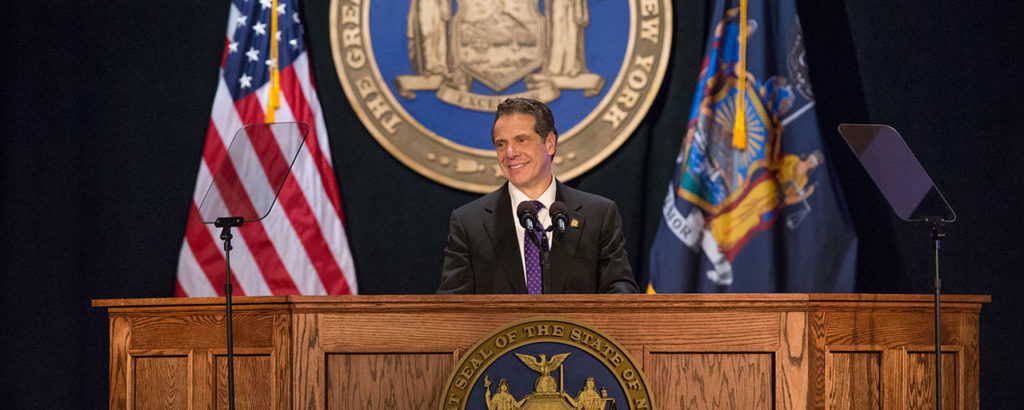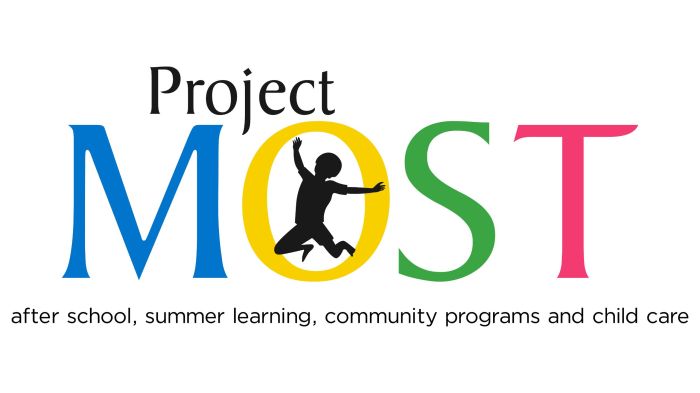Proposal will also require transparency of digital political ads and protect against cyber threats

Governor Andrew M. Cuomo recently announced the 13th proposal of his 2018 State of the State agenda: the Democracy Agenda, the strongest and most comprehensive reforms in the nation that mandate transparency in political advertising, require online platforms to maintain an archive of political ads and protect New York State elections from outside influence. It will also modernize New York’s antiquated voting system to make it easier to vote. This proposal will institute a series of reforms to improve transparency as well as push for the adoption of the Advancing the Democracy Project, an initiative to streamline voter registration services, remove unnecessary barriers that prevent participation in elections and increase accuracy in the voting process.
“What we saw during the last election was a systematic effort to undermine and manipulate our very democracy,” said Governor Cuomo. “With these new safeguards, New York—in the strongest terms possible—will combat unscrupulous and shadowy threats to our electoral process, as well as break down fundamental barriers that for far too long have prevented New Yorkers from being heard and from exercising their right to vote.”
As the 2016 election proved, social media is now as popular a venue for placing and viewing political advertisements as television, print publications, or radio. However, to date, political advertisements on social media platforms are not regulated in the same way as advertisements on traditional media platforms, which has created new opportunities for unscrupulous and disruptive actors to improperly influence our political process. For example, as many as 126 million Americans are estimated to have seen Russian-bought political ads on Facebook alone last year, without realizing that they were seeing content paid for by Russia.
Additionally, 131,000 Twitter messages, linked to more than 36,000 Russian accounts, have also been identified. According to Pew Research Institute, 69 percent of Americans use some type of social media, including people across all age groups. Given its prevalence, now more than ever, it is critical that we address the regulation of advertisements on social media just as we do on traditional media.
New York will tackle this issue with the strongest and most comprehensive policy to ensure that elections in New York State remain fair and transparent and that online political ads are archived for all to see. In recent months, a bipartisan group of U.S. Senators and House members have introduced legislation to regulate online advertising for federal elections, and Facebook and Twitter have shown strong corporate social responsibility in adopting new policies to ensure transparency and retention of political advertising. The governor’s proposal will codify those practices into New York law and ensure that all social media platforms, and other states, adopt similar policies.
To ensure the fairness and transparency of New York elections, Governor Cuomo has put forth a three-pronged strategy to:
- Expand New York State’s definition of political communication to include paid internet and digital advertisements.
- Require digital platforms to maintain a public file of all political advertisements purchased by a person or group for publication on the platform.
- Require online platforms to make reasonable efforts to ensure that foreign individuals and entities are not purchasing political advertisements in order to influence the American electorate.
Violations of these requirements would be subject to a civil penalty of up to $1,000 for each instance.
New York State law currently requires that all political advertising on television, radio, and newspapers disclose the organization or individual paying for that ad. This does not apply to political advertisements online. This proposal will update the definition of “political communication” to include paid internet and digital advertisements, and require that all advertisers include a disclosure in their election-related ads such as “paid for by.” In this way, anyone who sees a political ad online will know, first, that it is indeed a paid political ad; and second, who is responsible for it.
As stated by Senators Klobuchar, McCain, and Warner in their federal proposal for the Honest Ads Act, the public nature of television, radio, and satellite ensures a level of publicity for any political advertisement, making them accessible to the press, fact-checkers, and political opponents, thereby discouraging the dissemination of false, inflammatory, or contradictory information. In contrast, on social media platforms, the ability to directly target portions of the electorate with ephemeral advertisements based on private information held by the platform enables political advertisements that are often contradictory, inflammatory, or false. Only a certain subset of the electorate sees a given ad on a social media platform.
To rectify this and ensure greater transparency in online political advertisements, Governor Cuomo proposes to require digital platforms to maintain a public file of all political communications purchased by a person or group on their platform related to New York State elections. The file would contain a digital copy of the advertisement, a description of the audience the advertisement targets, the number of views generated, the dates and times of publication, the rates charged, and the contact information of the purchaser. This archive will ensure that political ads do not disappear, and that they are viewable, and able to be fact-checked, by a larger portion of the electorate.
By amending state law so that paid internet or digital advertisements are included under the definition of political communications, New York will work to ensure that foreign entities are unable to covertly purchase and distribute political advertising through social media or other outlets. Now, digital ad buyers would be required to register as an independent expenditure committee, just as they would if they were purchasing time on television. Foreign entities will be prohibited from forming an independent expenditure committee and, as a result, would be unable to purchase and publish political advertising online.
Additionally, paid political ads online will be required to clearly and conspicuously display the persona who paid for the ad and that it was not authorized or requested by any candidate. Now, online political ads will face the same disclosure requirements as television or radio ads, no matter what they cost, and voters will be able to see where the ad is coming from, even if it is as small as a tweet.
Following numerous reports of Russian meddling in the 2016 election, Governor Cuomo directed the New York State Cyber Security Advisory Board earlier this year to work with State agencies and the State and County Boards of Election to assess the threats to the cyber security of New York’s elections infrastructure, identify security priorities, and recommend any necessary additional security measures.
As a result of this review, Governor Cuomo is proposing a four-pronged approach to further strengthen cyber protections for New York’s elections infrastructure:
- Create an Election Support Center;
- Develop an Elections Cyber Security Support Toolkit;
- Provide Cyber Risk Vulnerability Assessments and Support for Local Boards of Elections; and
- Require Counties to Report Data Breaches to State Authorities
Create Election Support Center
The Election Support Center will leverage subject matter experts at the State Office of Information Technology Services, Division of Homeland Security and Emergency Services, DMV, State Police, the State Intelligence Center, the Executive Chamber and the State Board of Elections, to provide technical expertise and trainers—one of which will be stationed at the Intelligence Center to monitor election intelligence year-round. They will also assist the State Board of Elections with developing elections cyber security regulations; train County Board members in cyber security best practices; and ensure relevant threat intelligence is quickly distributed to local stakeholders.
Develop Elections Cyber Security Support Toolkit
The Elections Cyber Security Support Toolkit will ensure that County Boards of Elections have access to threat mitigation tools such as log analysis and network monitoring hardware and services, Distributed Denial of Service defenses during election and voter registration times, and change-detection software to monitor all changes to voter databases ensuring inconsistencies and discrepancies are identified, investigated and corrected in a timely manner. This toolkit will be created and updated annually by the agencies in the Election Support Center and distributed to County Boards through the State Board of Elections.
Provide Cyber Risk Vulnerability Assessments and Support for Local Boards of Elections
The state Information Technology Services Office will provide vulnerability assessments in order to make sure local voting machines are protected. In addition, the state will offer a free hosted Disaster Recovery service. In the event of a cyber-attack or election dispute, data could be taken from the State site for recovery or forensic analysis.
Require Counties to Report Data Breaches to State Authorities
To further protect the integrity of our elections, County Boards of Elections would be required to notify the State Board of Elections and the State Police whenever there is a data breach that could potentially expose private voter or election information. The State Board would also be required to issue an annual New York Election Security Report to the Executive and Legislature outlining security risks and potential remediation.
…………….
Early Voting
This proposal would make it easier for New Yorkers to vote by instituting early voting in the State. The proposal requires every county to offer residents access to at least one early voting poll site during the 12 days leading up to Election Day. Voters will have at least eight hours on weekdays and five hours on weekends to cast early ballots. Counties must have one early voting poll site for every 50,000 residents and the bipartisan County Boards of Elections will determine the specific location of early voting polling places, subject to standards of accessibility and convenience.
Research shows that work, school, and personal commitments can prevent voters from participating in United States elections. Early voting would ameliorate these inhibitors and lead to shorter lines on Election day, early detection and correction of registration errors and greater access to voting.
New York is one of only 13 states where early voting is not available and an excuse is required to request an absentee ballot. New Yorkers can vote via absentee ballot only if the voter meets certain qualifications such as being absent from his or her county on Election Day or being unable to get to the polls due to a disability.
Currently, 37 states and the District of Columbia already allow voters to cast ballots in person before Election Day. In 2016, the number of these voters who had cast their early ballots by the week before Election Day nearly doubled compared to the 2012 elections.
Automatic Voter Registration
To modernize the voter registration process, the governor will propose adopting a system that implements automatic voter registration.
The new system will streamline state services by automatically sending voters’ information from relevant agencies application directly to the County Board of Elections. New Yorkers who do not wish to register to vote can simply check an “opt out” box.
Citizens can already register to vote at the DMV, but often face unnecessary, onerous regulations requiring a potential voter to include additional voting information in their application for a DMV service. Paper applications can introduce errors to voter rolls, and inaccurate registrations can lead to voters encountering difficulties at the polls. Automatic voter registration can lead to improved accuracy of voter registration lists, reduced costs, and a more convenient and efficient process for voters and election officials.
Same-Day Voter Registration
New York does not currently allow voters to register on Election Day. This proposal would allow New Yorkers to register and vote on the same day so that onerous and counter-intuitive registration deadlines do not prevent New Yorkers from having the opportunity to participate in the electoral process. Thirteen other states and the District of Columbia allow same-day registration, which has greatly increased the accessibility of the democratic process to everyday citizens.
Senator Amy Klobuchar (D-MN), Senator Mark Warner (D-VA), Rep. Derek Kilmer (D-WA), Deputy Director, Sunlight Foundation Alex Howard, Director of Democracy and Government Reform of Center for American Progress Liz Kennedy, President of the Brennan Center for Justice at NYU School of Law Michael Waldman and senior counsel at Cahill Gordon & Reindel LLP Floyd Abrams support the proposal.
































